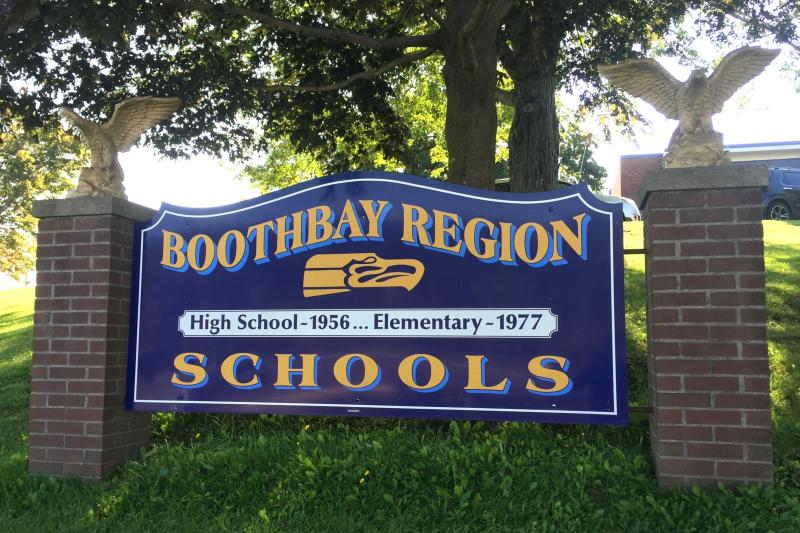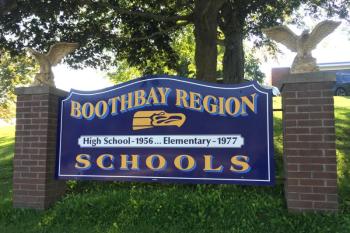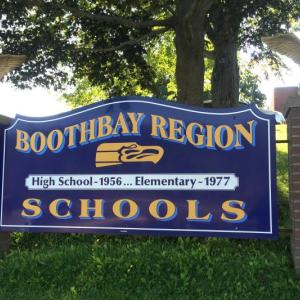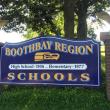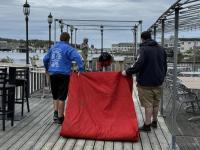CSD approves $1.6M ‘critical’ repair bond after legal appeal
The Community School District Board of Trustees approved seeking an up to $1.6 million bond referendum to fund what the board called critical repairs to both Boothbay region elementary and high schools. The board's Jan. 29 decision came after news that litigation around last year’s $30 million referendum for elementary school renovations will continue.
Dec. 31, a Lincoln County Superior Court justice ruled against the plaintiffs’ request for a new referendum for the major renovations. Jan. 16, plaintiffs filed a notice of appeal in response, within the two-week deadline. In communications presented at the meeting, Alternative Organizational Structure 98 Superintendent Robert Kahler accused the plaintiffs of practicing delay tactics. He also said, if the district wins the suit, the major renovation project may be set back another year, adding around $2.1 million in escalated costs.
"I personally feel that it's more of a stalling tactic than it is anything else,” said Board Chair Troy Lewis about the appeal. “Otherwise, they wouldn't have waited until the last second to file it. If they really had some kind of interest that it was something they didn't agree with, they would have filed it as soon as they lost the initial decision.”
However, lead plaintiff Patty Minerich told the Register it is unfortunate Kahler “is resorting to tactics blaming the plaintiffs for delay rather than addressing voter discontent with the plans he has promoted.”
“We do not agree with the judge’s findings and are taking the course available to us by law, which is to appeal the matter,” Minerich said in an email. “We have done nothing to extend or delay the timing of this matter through the available legal process, and in fact agreed to expedited resolution before the Superior Court.”
Minerich also said the possibility of an appeal was no surprise to either party. In addition, during the litigation process, district representatives said the CSD would have likely appealed if the ruling had gone the other way. Since October, the trustees had been preparing for the plaintiffs' appeal, working to identify priority repairs they see as critical or significantly more expensive to fix if the system fails.
In public comment before the Jan. 29 vote, CSD teacher and parent Emily Higgins highlighted some of the issues from a firsthand perspective, urging trustees to make repairs as soon as possible. She mentioned out-of-code staircases, “extreme” indoor temperatures, and leaking roofs, including an instance where water was falling on her daughter’s iPad during standardized testing.
“I want my children to graduate from here. They want to graduate here," she said, expressing concern the school may have to close for safety reasons. "And it's time to renovate, repair, and, ideally, rebuild ..."
Later, the board unanimously passed a motion to seek a bond for repairs not to exceed $1.6 million. Projects at the high school include the roof, a fuel tank, two entrances, gym windows, and the heating and ventilation control system. At the elementary school, they include the roof and parapets, food refrigeration systems, and another fuel tank.
According to the district, the approved repairs are estimated to cost around $1.46 million. The motion also included a 10% cost buffer, which trustees voted would not be spent unless they approved. Language has not been finalized, and Kahler said the district will start coordinating a referendum with the two towns.
The board also removed several projects from a working list before the motion. These include lighting upgrades for efficiency, which they agreed was not critical, and the dry sprinkler system at the elementary school, which was quoted much higher than expected.
The board removed $217,000 in service charges from the major renovation consultant, Lavallee Brensinger Architects. According to the board, the amount came as a surprise because they directed the firm to stop work in September to avoid exceeding donated funds for project planning. Trustees generally agreed they made clear their remaining budget and intent with the firm.
“My understanding was that we were stopping them before we were spending money we didn't have,” said trustee Darrell Gudroe. He later added, “I don't want to be caught off by $220,000. That's not OK for the people we're doing this for. If I remember right, they were going over a little, but I didn't think they were going over that much.”
According to Kahler, the trustees had discussed last year that some fees would need to be covered by the operational budget. The board requested more information from the firm to clarify the situation.

